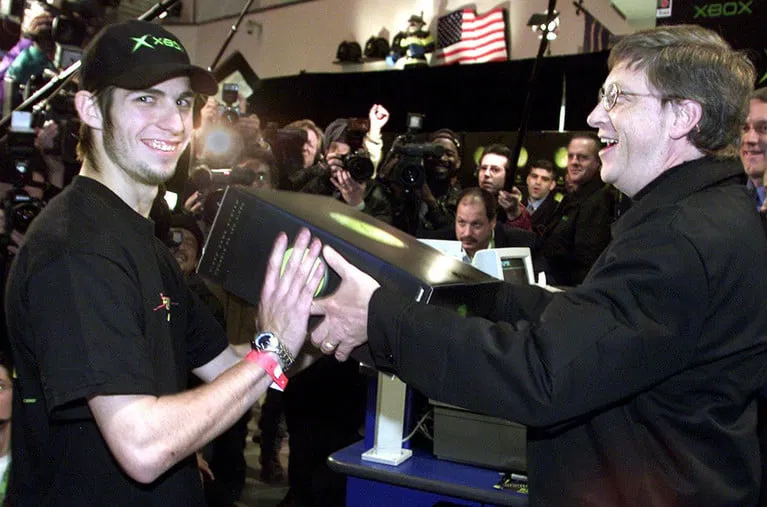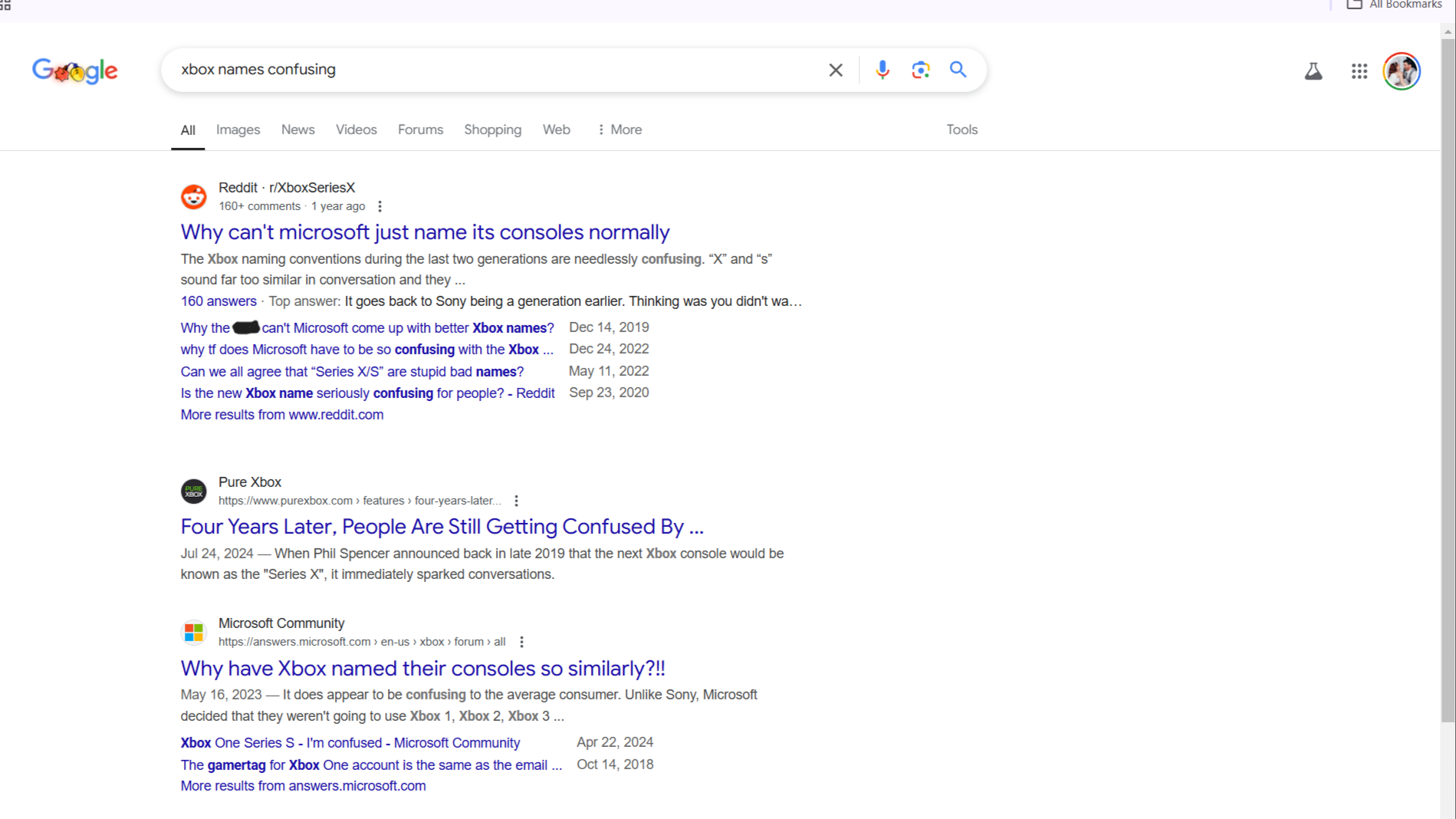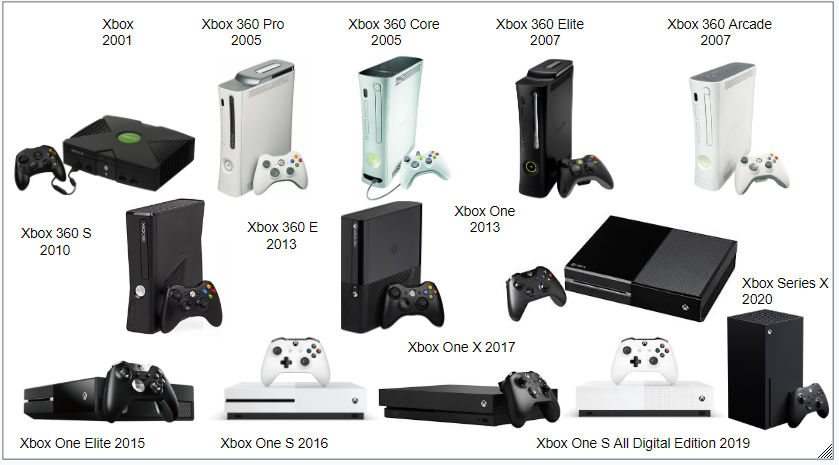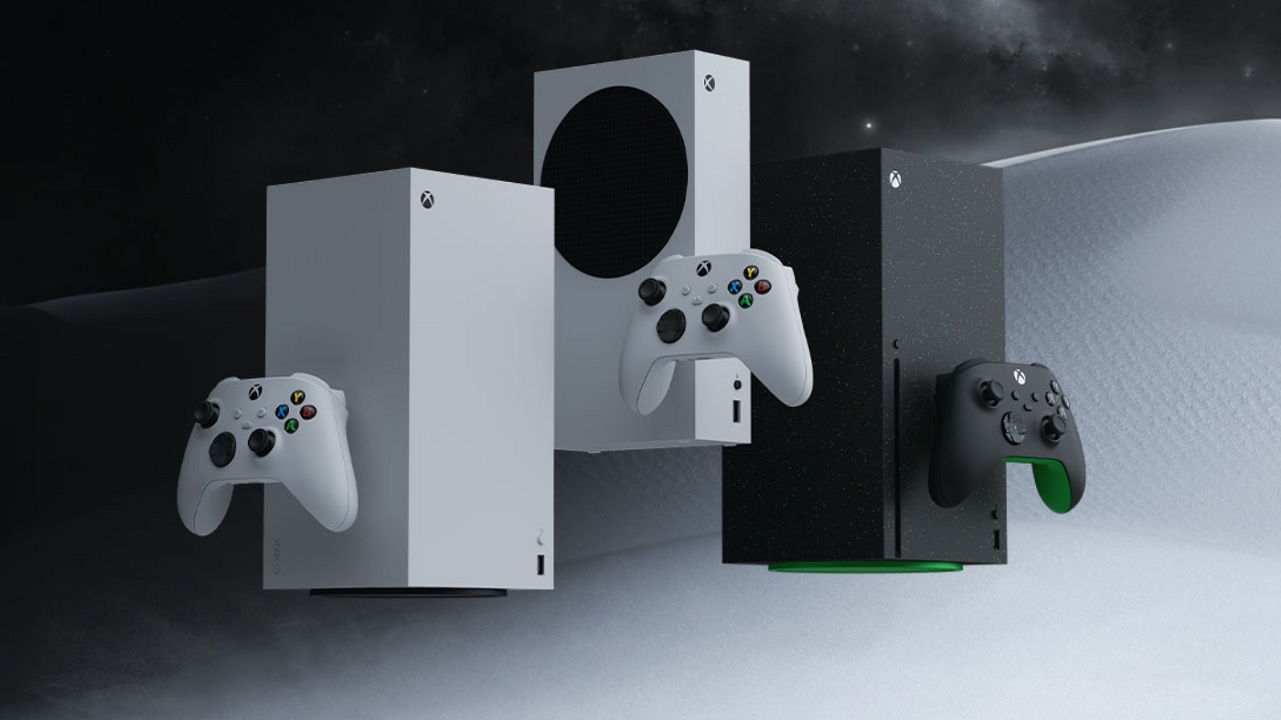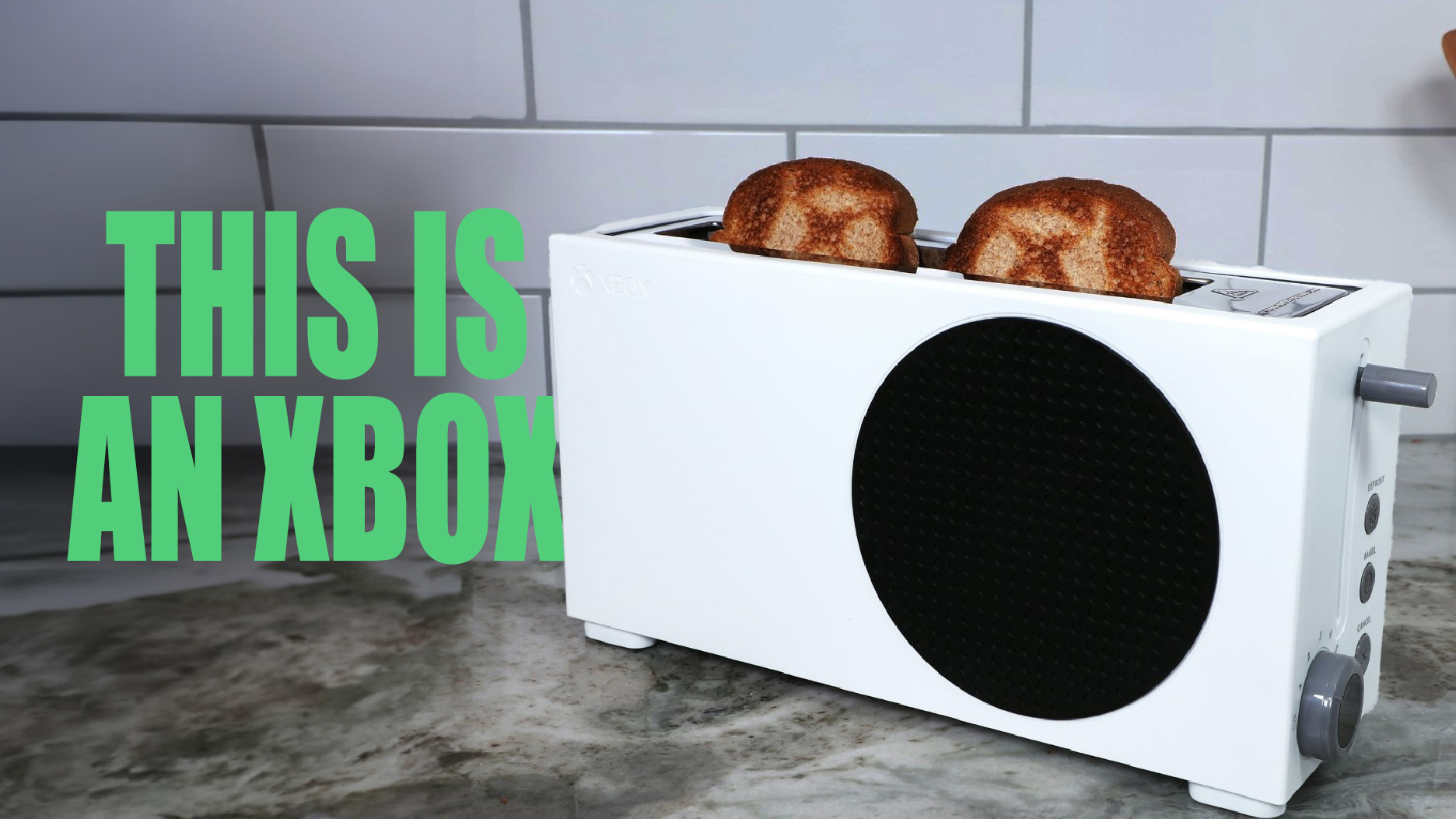It’s 2001, and you’re sitting outside Gamestop for some new-fangled device. You’re the only one in your friend group who decided they’re wild enough to get an Xbox over the Nintendo Gamecube that releases only a few days later. Basically, you’re nuts, and you have no friends. Well, you have one if you manage to make it to the Toys R’ Us store opening, where Bill Gates hands them out himself!
You’ve heard good things about this Halo game, but you’re really not sure what to expect. Your internet is too slow to watch any videos; all you have to go off of is the Game Informer issue from that month, which pitted the Xbox against the Gamecube as well. Online gameplay? You’re 12; while you’re technically not supposed to be playing online, the online gameplay of Xbox Online will be shaping you for years to come.
The success of Xbox led to the creation of the Xbox 360. It was named as such because they wanted to convey the fully overhauled gaming experience or 360 degrees of entertainment. While the Xbox 2 would have been a great choice as well, this was supposedly dropped as they didn’t want an Xbox 2 competing against the PlayStation 3. They felt it would communicate the idea that Xbox was a generation behind.
Those weren’t the only names used during Microsoft’s second-generation console. We got the Xbox 360, Xbox 360 Core, Xbox 360 Arcade, Xbox 360 Elite, Xbox 360 S, and the Xbox 360 E. All in all, Microsoft decided that six SKUs were enough for the longest generation in gaming, at least until now. You had the OG, a couple without hard drives, and the slims.
Now, these terms weren’t getting out of hand until 2013 rolled in. It was at that point we all knew they bleeped up. Xbox One entered the chat, and everyone let out an audible “Huh?” They were scared the Xbox 2 would be scored as a generation behind the PlayStation 3, but when it came to the PlayStation 4, they decided the Xbox One was okay. Whatever, I can get over it; I mean, it worked for Battlefield One, right?
Then they made the slim version, the Xbox One S. Okay, I get it. Then, they followed up with the Xbox One X. I swear, there’s a reason I’m giving gamers a history lesson they probably already know.
Lo and behold, it’s 2020, and the Xbox Series X and S come out. So now you have an Xbox 360 S, Xbox One S, Xbox Series S, Xbox One X, and an Xbox Series X. I’m sure this won’t be confusing at all, right? Wrong.
People get confused
It turns out the Redditor ggf66t recently was a victim of this naming convention. In the post, he describes how he and his wife discussed buying one of Microsoft’s latest consoles to play Killer Klowns from Outer Space: The Game for their kids, which is only available on the Xbox Series X|S and PlayStation 5 consoles. Long story short, after a lot of back and forth, the wife ended up buying an Xbox One X instead of the Xbox Series X, meaning the game was totally unusable. So close!
Now, I get it. He should have checked; she could have done a little better when it came to researching the product, blah blah blah. They’re both at fault here, but can we start blaming Microsoft’s absurd naming convention, too? I mean, Xbox, Xbox 360, Xbox One, Xbox Series X|S. If I knew utterly nothing about gaming, I would guess all of these were products made by some company called Xbox. I’d have no idea they were sequential products by generation.
Again, we could blame people, but at what point does it come down to the fact Microsoft didn’t make these names simple enough? I mean, look at Nintendo, which has famously never named any of its consoles with numerals. They’ve had the NES, the SNES, N64, GameCube, Wii, Wii U, and Switch.
He’s not the only one who’s had issues, though. A quick web search provides multiple other instances of users complaining that they bought the wrong console. Like this user on Reddit who picked up an Xbox One S,
“My brother has been dying to play Baldurs Gate 3, but he is the biggest cheap skate the world has ever known and refuses to upgrade the prehistoric Xbox One he got at launch. Well, my coworker was upgrading from his S to a series X and asked me if I was interested. After seeing that BG3 was optimized for X/S, I was like, oh hell yeah, I bought the console for a steal and snagged a cheap HDMI cable and controller. I tried setting it up last night, but the servers were down. So here I am setting it up for him while he’s at work so I can surprise him with his new console when he gets home, and sure as shit, this console won’t run [the game] because an Xbox One S is not the same as an Xbox Series S. Not talking shit about xbox or anything, this was all my fault, just figured I’d come to share my stupidity and maybe save some other redneck who’s behind on the times, the One S is not the same as the Series S lmao. Took the L and had to share.”
No matter what corner of the internet you check, you’ll come across people, at the very least, complaining their hearts out. Like the users over at Giant Bomb, “How confusing is the new Xbox naming convention? Who thought this was a good idea? I went on eBay to see how much the new consoles there were, and I genuinely had a few minutes of ‘Well…which is the new one.'”
The other side of the coin is Nintendo, which has famously never named any of its consoles with numerals. They’ve had the NES, the SNES, N64, GameCube, Wii, Wii U, and Switch. Wait, did you catch that?
The only significant hiccup Nintendo ever made with naming, and it’s one that Microsoft has continued to make, is in naming their product using similar language. The Wii and Wii U were notoriously confusing to parents looking to buy their kids the latest “Nintendo” that was on the market, even though these consoles launched 6 years apart.
Did Nintendo double down and create a new version of the Wii U? No, they pivoted to the Nintendo Switch and introduced the iconic Switch opening sound in every commercial, effectively erasing the Wii and Wii U debacle from everyone’s memory. They’d only misstep once more if they introduced the Switch 2 as the Switch U.
Microsoft needs to do better
Going forward, Xbox needs to have something that rightfully screams “sequel console” to make sense. That is, of course, unless Microsoft decides to turn the whole situation into a hardware circus with third-party manufacturers stepping into the ring. I can already see it now: introducing the ASUS ROG Strix Xbox Pro, the ASUS TUF Xbox Pro, and then the inevitable S, E, X, and Y versions that come with a side of confusion. Don’t even get me started on the mid-gen refresh—what’s next, four different versions of Game Pass? Oh, wait.
Please, Microsoft, spare us from the GPU-style naming mess! I just want to play games; I don’t want to become the guy everyone in my family asks about which console is which. I’m already that guy, but still, if I have to start ranting about minuscule hardware differences between five or six different versions, my family is going to tune out almost immediately. My nieces and nephews are going to be even more bitter than they already are that their parents can’t pronounce Fortnite no matter how hard I try to correct them—wrong article rant.
Just know that all of this could have been avoided if they hadn’t been afraid of the PlayStation 3 and had instead chosen to go with the Xbox 2 or to skip ahead to the Xbox 3. Today, we could be discussing the Xbox 4 or 5. I don’t mind whether an “X” or “S” was attached to the name because numerical designations carry actual meaning. Not this “Series” or “One” crap. To the average consumer, there is no clear recognition between those words. One slip-up, and you could end up making the best Christmas Killer-less instead.
When you go back to doing what you do best, which is making some top-end hardware, can we please keep the names within reason? The phrase, “keep it simple stupid,” wasn’t created for nothing, and it’s something more corporations should keep in mind when dubbing their creations. That’s not an ‘okay’ to use the phrase “dub” in your next Xbox.


